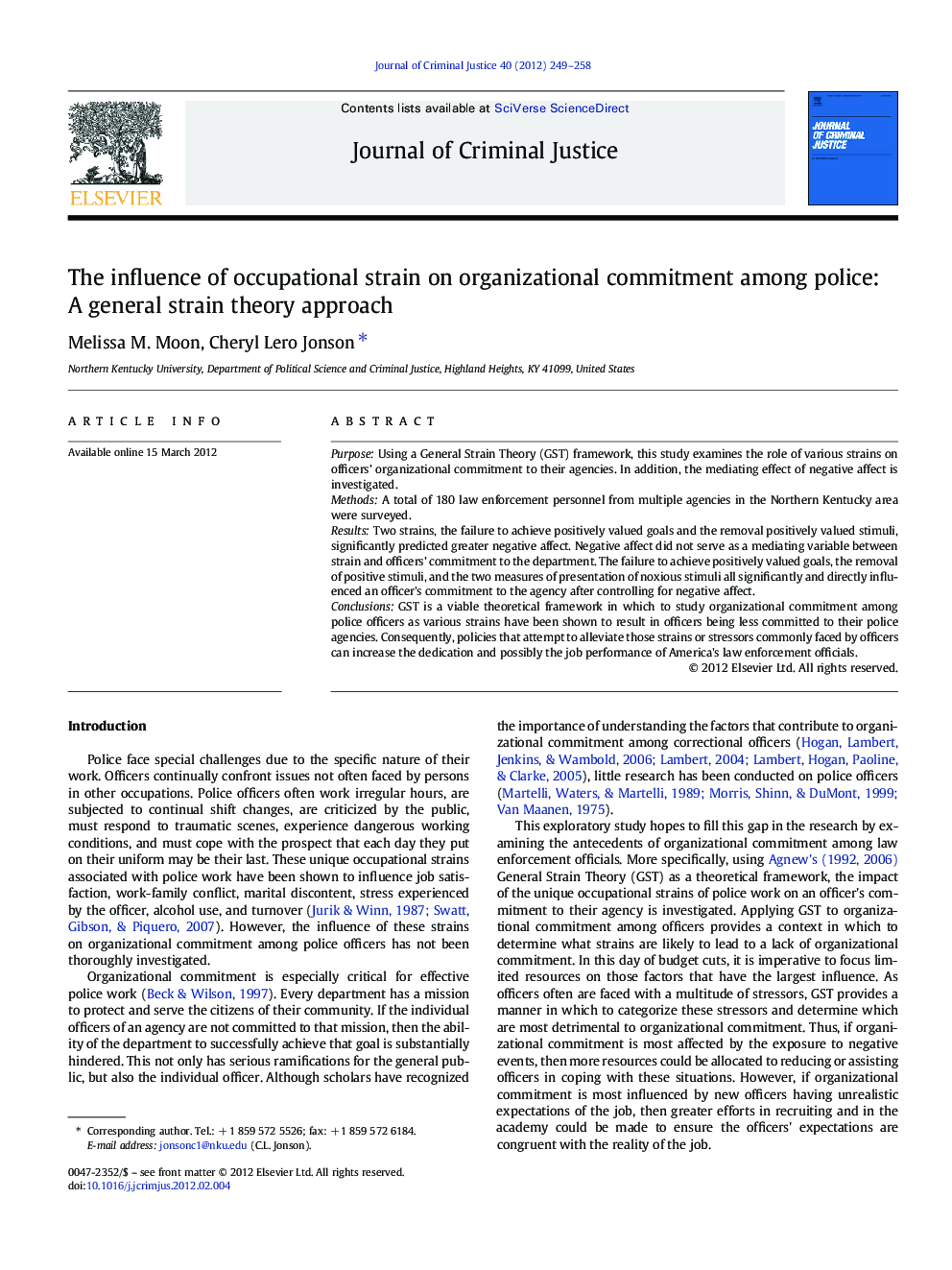| Article ID | Journal | Published Year | Pages | File Type |
|---|---|---|---|---|
| 882873 | Journal of Criminal Justice | 2012 | 10 Pages |
PurposeUsing a General Strain Theory (GST) framework, this study examines the role of various strains on officers’ organizational commitment to their agencies. In addition, the mediating effect of negative affect is investigated.MethodsA total of 180 law enforcement personnel from multiple agencies in the Northern Kentucky area were surveyed.ResultsTwo strains, the failure to achieve positively valued goals and the removal positively valued stimuli, significantly predicted greater negative affect. Negative affect did not serve as a mediating variable between strain and officers’ commitment to the department. The failure to achieve positively valued goals, the removal of positive stimuli, and the two measures of presentation of noxious stimuli all significantly and directly influenced an officer's commitment to the agency after controlling for negative affect.ConclusionsGST is a viable theoretical framework in which to study organizational commitment among police officers as various strains have been shown to result in officers being less committed to their police agencies. Consequently, policies that attempt to alleviate those strains or stressors commonly faced by officers can increase the dedication and possibly the job performance of America's law enforcement officials.
